School Choice and Missouri’s Small-Town, Rural Voters
At a recent event hosted by Missouri’s Show-Me Institute and Hammond Institute for Free Enterprise, three state legislators (two Republicans, one Democrat) disclosed that the state’s small-town and rural legislators—many of whom are Republican—represent some of the most ardent opposition to school choice.
Unfortunately, we have observed similar resistance in other states. And that is unfortunate, particularly in Missouri, as the voting public—including those in rural and small-town communities—clearly supports a range of school choice policies, including tax-credit scholarships and interdistrict public school transfers, two topics that have been of interest among lawmakers and media.
Among those two issues, voter support tends to be greater than the opposition by at least a two-to-one margin. Why, then, is there so much inertia among rural legislators to fight for school choice proposals in Missouri?
Our latest Friedman/Braun Research survey shines a light on the wide disconnect between what small-town and rural voters want and what their political leaders are saying in Jefferson City.
As you can see below, public opinion right now is bleak regarding the state of K-12 education in Missouri. Residents are also pessimistic about its future. The negative feelings are detected regardless of community type. That said, we can see that small-town/rural voters appear slightly less negative and more positive than voters in other communities, particularly in urban areas.
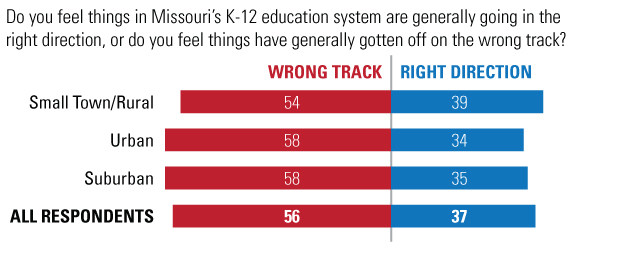
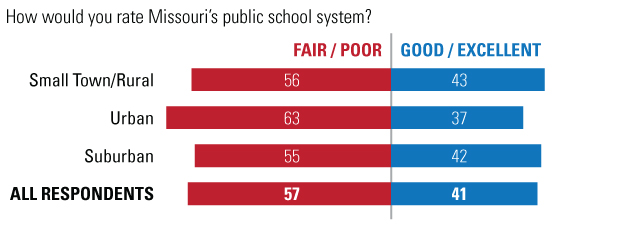
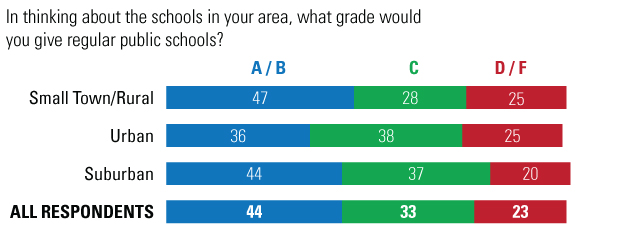
The second half of our survey asked questions about various school choice policies, including tax-credit scholarships and interdistrict public school transfers—two reforms that have generated much debate in the legislature and local and state media over the past six months.
Despite the claims of many politicians in small towns and rural areas, there is significant public support for school choice policies among their constituents. In fact, small-town/rural voters expressed a higher level of support for tax-credit scholarships even when compared to their counterparts in the urban and suburban communities.
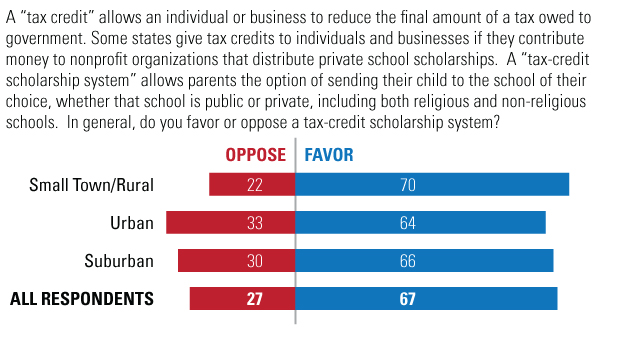
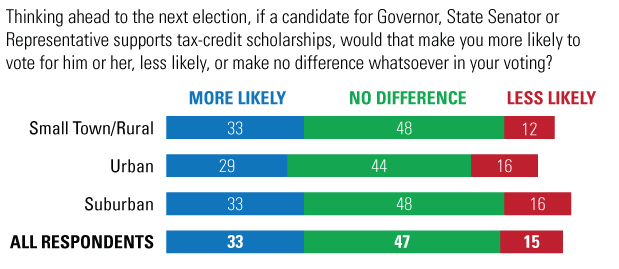


For more on what Missouri voters think about various education-related topics, read our full Missouri K-12 and School Choice Survey.




